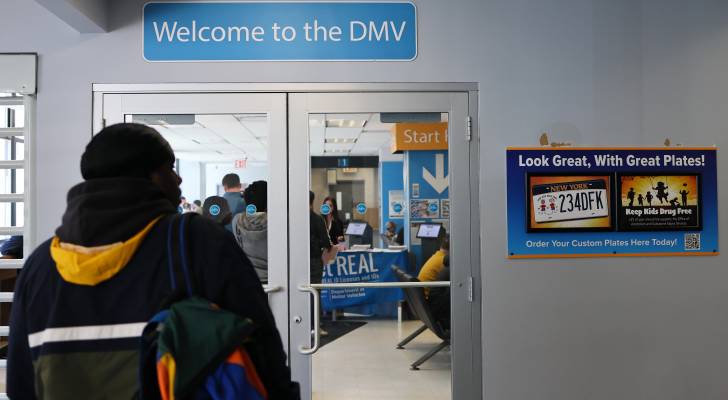‘It’s a big win’: Florida’s Ron DeSantis signs 2 new laws to stop squatters from taking over hotels, restaurants and businesses — but is squatting really that big of an issue in the US?
Florida Governor Ron DeSantis recently signed two new laws protecting commercial property owners from squatters. These laws are part of the state’s broader effort to crack down on unauthorized occupancy and strengthen private property rights. Don’t miss I’m 49 years old and have nothing saved for retirement — what should I do? Don’t panic. Here […]
This Florida man was set to receive a trove of credit card ‘skimmers’ and cloned cards — until customs agents busted the shipment. Here’s where fraudsters use these data-stealing devices
Three people are facing multiple charges after Florida law enforcement officials busted a massive skimming operation in Hernando County, reports FOX 13. The Florida Department of Agriculture and Consumer Services’ Office of Agricultural Law Enforcement (OALE) began an investigation after U.S. Customs and Border Protection confiscated a shipment of illegal skimming devices headed to the […]
I’m 31, locked in a great mortgage rate of 4.75 % when I bought my home 2 years ago, paying $1,000/month, all-in. Now, my boyfriend wants to buy a place together. Should I buy a second home?


A 31-year-old homeowner has found herself in a common modern-day dilemma: Should she stay put in a home she owns (with a great mortgage rate) or take the next step with her partner and buy a second home together? Understandable if she didn’t want to sell — she’s owned her home for less than two […]
Texas just signed a new law against ‘jugging’ to protect people who carry cash — here are the brazen crimes happening nationwide that forced lawmakers to act


In the surveillance footage, a car holding a wad of cash fresh from the bank pulls into a convenience store on Houston’s Telephone Road. Within seconds, two vehicles pull up. Thieves jump out, smash windows on both sides of the victim’s car, grab the cash and drive away. Don’t miss I’m 49 years old and […]
I said I’d cosign an auto loan for my parents and gave them all my details for the paperwork — but then they went to the dealer without me and got completely ripped off. What happens now?


It’s enough to leave any adult child fuming with frustration. You agreed to cosign a car loan for your parents with normal expectations — a limit on how much they’d spend, say $23,000, and an understanding you’d actually get to sign the loan. You hand over your information to help with initial paperwork, then you […]
This Colorado woman swapped her 3,000-square-foot home for a 520-square-foot luxury tiny house on wheels — now she pays just $725/month. Could going small be the big change you need?
When Jen Gressett’s 18-year marriage ended in 2018, she didn’t just need a new place to live — she needed a fresh start. But after selling her 3,000-square-foot home near Boulder, Colorado, she found that traditional housing options were simply out of reach financially. So she got creative. Inspired by the tiny home trend she’d […]
I wanted to spare my kids the burden of student debt — but I made 1 huge mistake with their 529 plan. What I’d do differently if I could go back (and what you can learn from my missteps)
Imagine you’re a diligent parent who, haunted by your own student debt, maxes out a 529 college savings plan for your kids every year to afford a pricey private college. Then life veers off script: Your kids picked more affordable in‑state schools, graduated early and even received help from a generous grandparent. Don’t miss I’m […]
Michigan man left walking to work after his parked car was totaled in a police chase — only days after woman, 71, was killed by another fleeing driver. Why he says the police must ‘do better’
A man in Warren, Michigan, now has to walk to work after a Memorial Day high-speed car chase ended in a crash that totaled his only vehicle. The incident began as a routine traffic stop, when the driver of a Chrysler 300 was pulled over for a tinted window violation. At some point the driver […]
NY prosecutors say ‘countless’ drivers paid up to $2K to have someone else take their road test — and 3 DMV employees are now facing charges. Here’s how police cracked the case


New York prosecutors say three DMV examiners worked with a Queens driving school to help people get licenses without taking tests — pocketing thousands of dollars in cash in the process. It’s alleged the scheme allowed hundreds, possibly thousands, of people to bypass the driving exam process. "Countless individuals are now driving on our roads […]
Houston woman, 78, died terrified of losing her home after signing a $138K solar contract she didn’t understand — now her family hopes new legislation will save others from the same ‘burden’


A 78-year-old Houston woman spent her final days overwhelmed with fear and stress, believing she might lose her home over a solar panel contract she said she didn’t understand. Delores Wigal, a mother, grandmother and retired school bus driver for children with special needs, had just been placed on hospice after a short battle with […]
